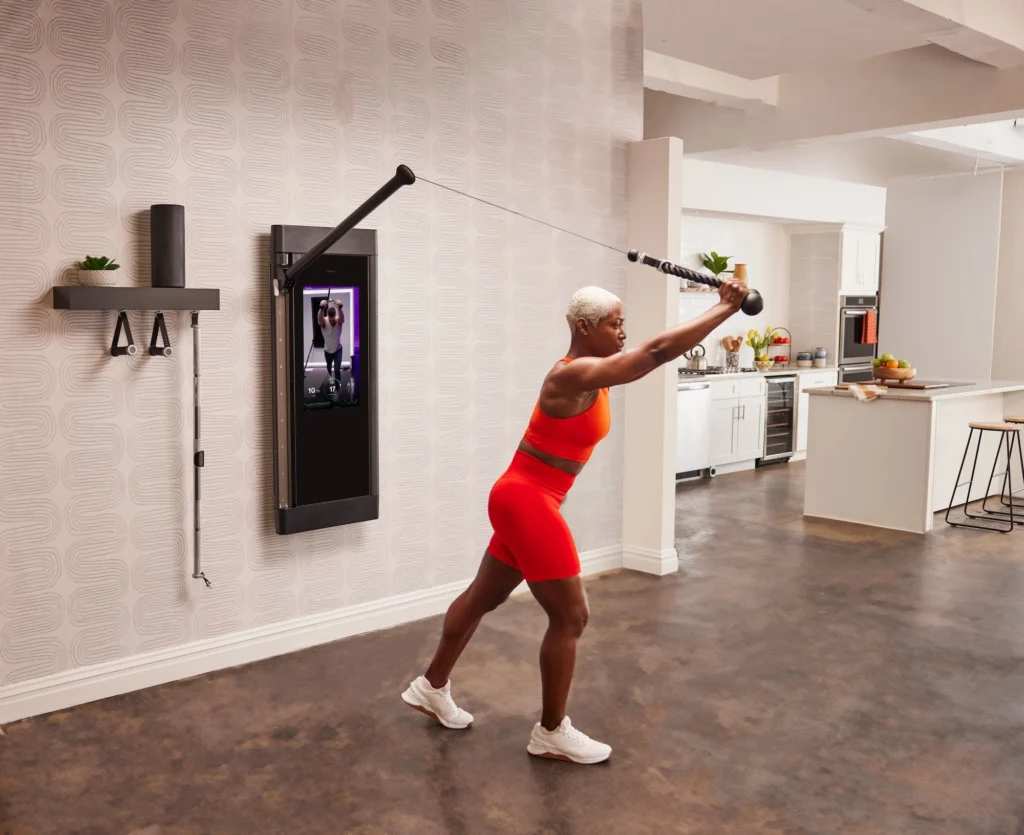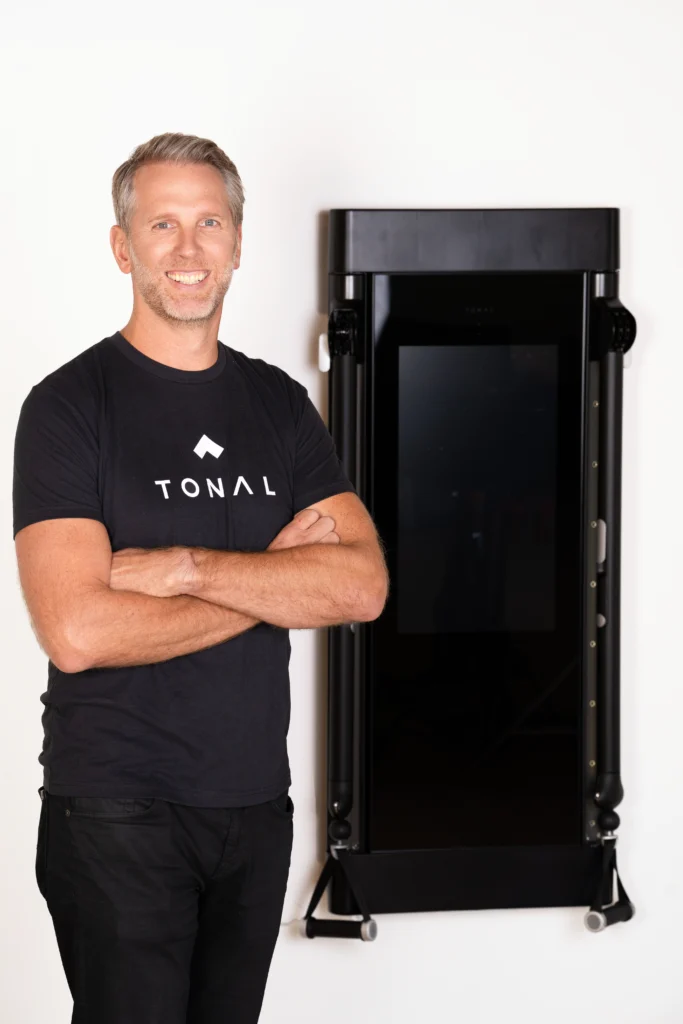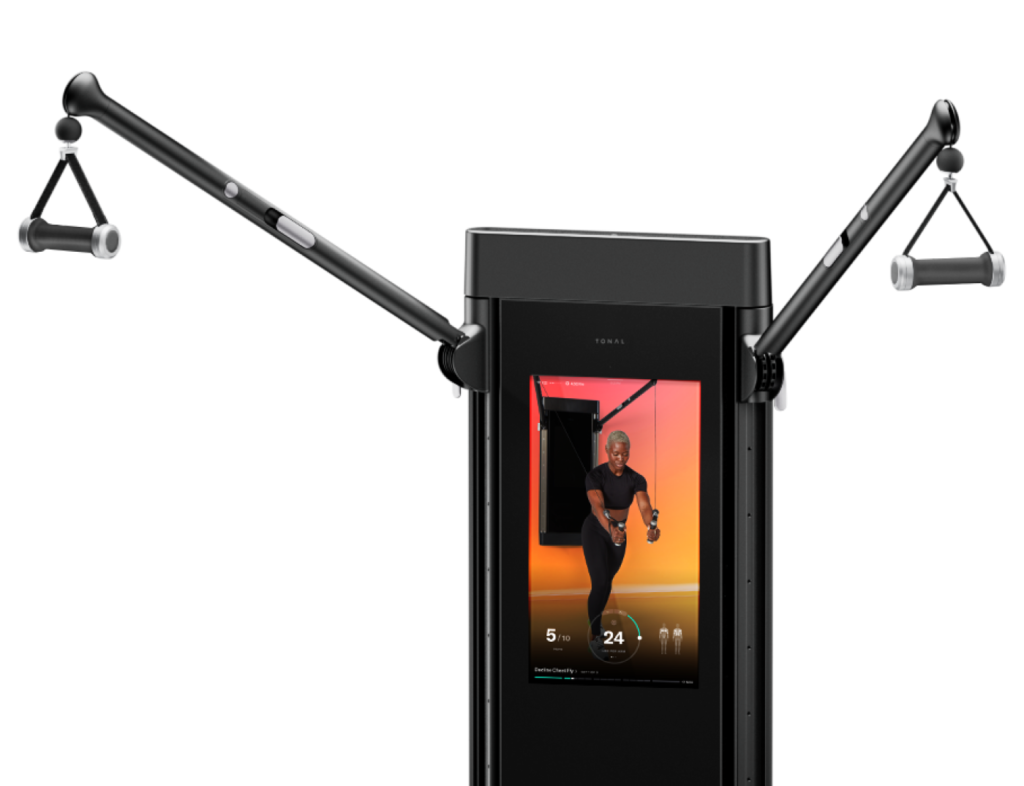Tonal’s New CEO Shares His Vision for Growth and Innovation

Athletech News caught up with new Tonal CEO Darren MacDonald as the smart home gym company preps for its first pop-up Tonal Training Lab in New York City
As 2024 winds down, Tonal isn’t taking a beat. The smart home gym leader is reaffirming its impact on the fitness and longevity industry, reminding the world of its transformative power.
With a fresh ad campaign highlighting its role in the pivot away from cardio-heavy training methods, the upcoming launch of the world’s first Tonal Training Lab in January 2025—complete with a pop-up experience for devotees to train with Tonal coaches in person—and the leadership of a new CEO, Tonal has laid the groundwork to charge into the new year with momentum.

Earlier this fall, the smart home gym company announced that its chief, Krystal Zell—a Harvard Business School grad and one of the few female CEOs in the fitness industry—would be stepping down. Her tenure, which began in April 2023, coincided with an influx of $130 million in new funding as she course-corrected Tonal following the challenges many fitness companies faced in the post-pandemic landscape and put the brand on the map for its AI-driven, hyper-personalized strength training experience.
Citing a desire to recharge and spend more time with her family, Zell has handed the reins over to Darren MacDonald. A dedicated Tonal member and a seasoned business executive, MacDonald brings over 20 years of experience in global digital strategy and business development.
Now settled in as CEO, MacDonald opened up to Athletech News to share his vision for Tonal’s future and what’s on the horizon.
Home Gym Revival
Although competition has heated up in the home-based strength training space, MacDonald is firm that Tonal is truly redefining the strength training experience in several ways, including delivering proven results through thousands of coach-led workouts, both on-demand and live, all within the comfort of home.
While in-person fitness studios and gyms may have seen a surge in activity post-pandemic, Tonal has become an anchor for many at-home fitness fans due to its interactive and intuitive nature, giving rise to home gyms.
“Our system is smart, effective and efficient, combining advanced digital weights with personalized, AI-driven coaching that intuitively adapts to each person’s fitness level,” he says. “This means you’re building strength faster and breaking through plateaus without the mental load.”
He adds that one of the defining factors of Tonal is its relentless focus on advancing strength training capabilities, with its performance team continuously researching, testing and refining the features Tonal can deliver.

“Tonal doesn’t just track your progress; it analyzes it in real-time, collecting 50 data points per second to predict the best weights and offer precise coaching cues,” MacDonald explains.
The data, science and personalization behind Tonal’s approach isn’t just marketing speak. The results its smart home gym delivers are profound, with members regularly sharing before-and-after pictures in a Tonal Facebook group. It’s not uncommon to see members proclaiming that they’re in the best shape of their lives, even well beyond their twenties.
That could explain why Tonal boasts over 90% of members remaining active after a year, according to MacDonald.
Data-driven Innovation
As data remains central to Tonal’s mission, not a bit of it goes to waste. The smart home gym company takes a granular strategy with its State of Strength report, which draws insights from over 175,000 members, analyzing their routines, goals and fitness trends.
“This data informs future features, helps us tailor workouts and guides our performance team in creating impactful programs,” MacDonald says.
The latest report, he points out, revealed that Tonal members often skip leg day despite its well-known benefits. Such insights will help Tonal design workouts that better integrate lower-body training, ensuring members achieve balanced, full-body strength.

“We believe that this data set is the largest strength database in history and it powers the innovation that we bring to the market in ways that others simply cannot,” he adds.
To that extent, MacDonald reaffirms Tonal’s laser focus on advancing its technology to support the pursuit of long-term health.
“We feel like we’ve developed far and away the best strength product in the market and believe there is so much we can do to unlock software and hardware to help our members attain the strength goals they seek,” he says.
A Hint of What’s to Come
Looking ahead, Tonal intends to expand its distribution through partnerships, roll out software that further enhances the value for its members and enter new markets.
MacDonald remains tight-lipped about the upcoming partnerships in the works, but he reveals that one on the horizon is with a highly respected organization focused on improving heart health.
“Strength training is instrumental in cardiovascular wellness, so this partnership is meaningful for our team and aligns with our data on the health benefits of strength,” he says.
Last month, Tonal partnered with Truemed, a platform co-founded by Calley Means that makes it simple to use Health Savings Account (HSA) and Flexible Spending Account (FSA) funds for health-related purchases. The collaboration gives U.S. customers the opportunity to purchase a Tonal while saving up to 30%.
Courtney Rehfeldt has worked in the broadcasting media industry since 2007 and has freelanced since 2012. Her work has been featured in Age of Awareness, Times Beacon Record, The New York Times, and she has an upcoming piece in Slate. She studied yoga & meditation under Beryl Bender Birch at The Hard & The Soft Yoga Institute. She enjoys hiking, being outdoors, and is an avid reader. Courtney has a BA in Media & Communications studies.



